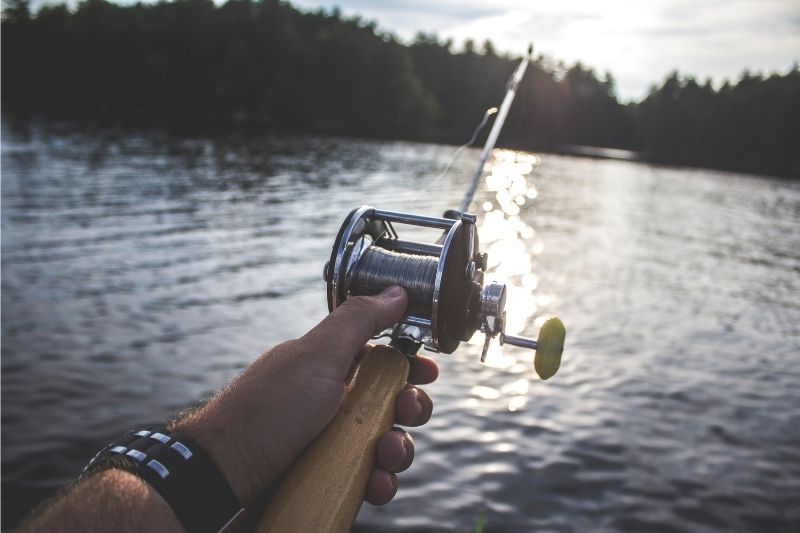6 Things To Know If You Want To Start Fishing

Fishing is an interesting hobby, but it requires you to master different skills to enjoy it. You must learn how to start fishing using a spinning rod and reel in freshwater before trying salt or seawater fishing. There are basic things you should understand before you start fishing. Here are 6 things to know if you want to start fishing.
1. Buy A Fishing License
Depending on your state, fishing is a regulated activity. This means that you should buy a fishing license for the state where you intend to fish. You can obtain your freshwater fishing license through an approved vendor or online. The cost of the license varies depending on your state, but they are generally inexpensive. People under 16 can fish for free in different states. However, an annual license is the most cost-effective option you can consider if you are an ardent fisherperson.
2. Find Boating Resources For Beginners
You can get an appropriate boat if you don’t want to limit your fishing experience to the banks. There are different types of boats you can try, designed for beginners. It is important to review fishing and boating guides to gain insight into the ideal yachts that can suit your needs and your family. Boating and fishing can be great ways to relax with your family. You can use an online guide to narrow your choice.
3. Get Fishing Gear And Tackle
You must get basic fishing equipment or tackle for beginners. You can get this from online retailers, tackle shops, or local sporting goods stores. The following are the basic things you need to start fishing in freshwater reservoirs like lakes or ponds.
- Spinning rod and reel determined by the type of fish you want to catch
- Assortment of hooks
- Different types of fishing lines
- Baits (plastic worms, earthworms for bass, or live crickets)
- Bobbers and lures
- sinkers
- Pliers or cutter
Additionally, you must have appropriate fishing gear depending on where you want to fish. Choose the ideal footwear, clothing, and headgear to prevent excessive heat.
4. Find Appropriate Places to Boat and Fish Near You
When your gear and license are ready, find a fishing spot. As a beginner, try to find accessible places with fresh water. You can check online to identify the best places near you where you can go. You also need to check if the area you want to go to involves targeting species for beginners like bluegill, largemouth bass, or catch fish. You should also be wary of your safety when you choose fishing locations. Check if there are no dangerous predators like crocodiles.
5. Master Concepts About Fishing Conservation
You should understand ethical or responsible fishing conservation practices. This refers to the practice of taking care of the environment and natural resources. For instance, you should not keep more fish than you can consume with your family. If you practice fishing as a sport, then you need to learn proper catch and release methods. Do not litter the water since this can cause pollution that will affect aquatic life in the long term. It is vital to understand the fishing regulations such as bag and size limits in the waterways and state where you plan to fish. You can get this information from the state agency’s website, where fishing regulations and laws are constantly updated. The good thing about learning conservation practices is that they will help ensure fish populations continue to thrive for the benefit of future generations to enjoy the same.
6. Learn Different Skills
There are different skills you should learn once you begin your fishing expedition. You need to know how to tie basic fishing knots, like an Arbor knot that connects the fishing line to the reel. You should also learn a line-to-line knot like a Surgeon’s knot that connects the fishing line to the leader. The Clinch knot is another terminal knot you should know that connects your fishing hook to the fishing line or leader. Another important thing is to learn how to cast. You also need more time to practice on different targets to improve your accuracy. Finally, it is vital to understand how to land a fish or bring your catch to the bank or boat.
Fishing is an exciting hobby that allows you to reconnect with nature and spend quality time with family or friends. As you delve into the world of fishing, it’s essential to enhance your skills and knowledge. One aspect often overlooked is the importance of maintaining the health of the aquatic environment. Consider investing in a windmill aerator for the pond, which can contribute to the well-being of freshwater ecosystems. These aerators help oxygenate the water, creating a more favorable environment for fish and other aquatic life. By incorporating sustainable practices and technologies like a windmill aerator for the pond, you not only enhance your fishing experience but also contribute to the conservation of natural resources.
We all need to reconnect with nature, and what better way to do this than through fishing? Fishing is an exciting hobby that can help you spend quality time with family or friends. However, to enjoy the experience to the fullest, there are different things you should know. The above tips can go a long way in helping you learn to improve your skills.











Leave a Reply